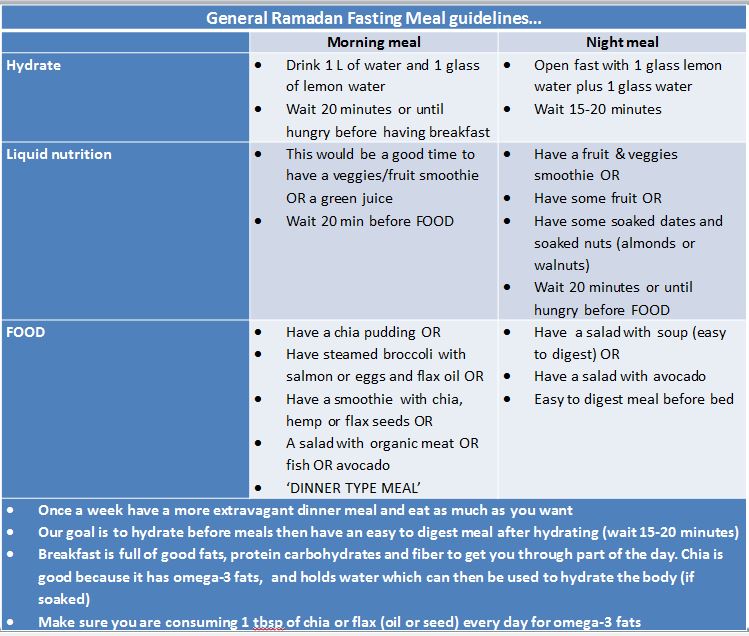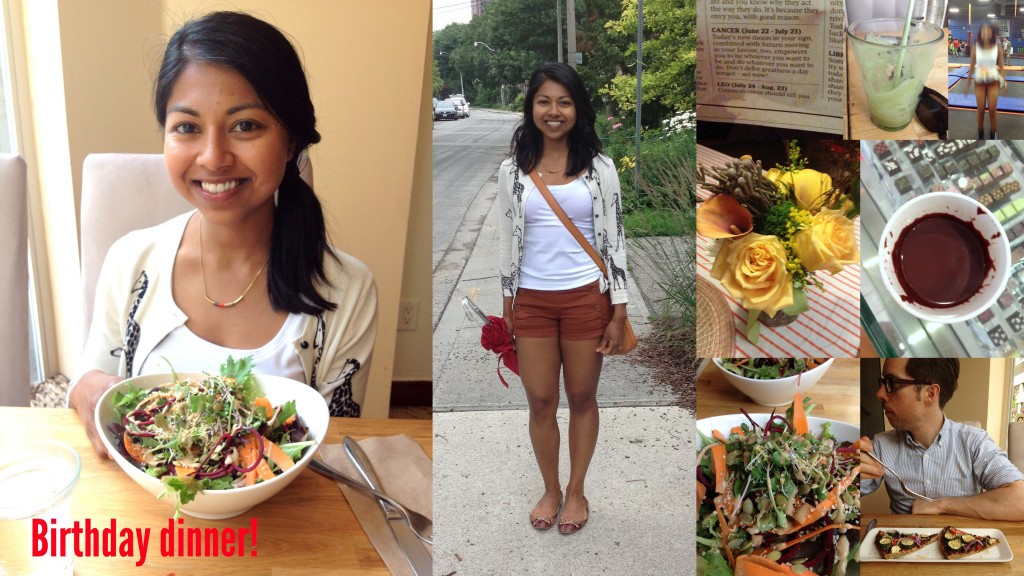This past weekend a few of my girlfriends came over to celebrate my birthday (today is my actual birthday, however, I always welcome an early celebration!). Today, I had a lovely day out with my fiancé trampolining, eating and drinking chocolate, wedding band shopping(!) and dining at one of my favorite restaurants, Rawlicious.
Ok, but on to the real reason for me posting! Since I am such a huge advocate of living a healthy life EVERYDAY my friends have caught on and I have become their go-to for nutritional advice. On the weekend while celebrating with my girlfriends we were discussing Ramadan. The girlfriends that came over are Muslim and observe Ramadan by fasting. They have done this for many years and while it is a holy time they don’t tend to feel their healthiest. They tend to consume traditional foods that are very rich and leave them feeling the ill effects of unhealthy eating. They cannot eat or drink anything while the sun is out and that means more than 12 hours of fasting in the summer months with breakfast as early at 4 or 5am and dinner as late as 9pm.
In order to decrease some of those ill feelings that come with fasting, I created a guideline for my friends to get them through the month in a more balanced and healthy way. This is a guideline and I believe it will be helpful for those who are fasting. Since I have never personally fasted in this manner, I would love some feedback for those that use the plan! If you have any questions or would like a more personalized plan please contact me 🙂
Some tips on fasting:
- Consume organic food. If eating organic food exclusively is difficult, I suggest starting with organic meat and fish, as well as organic versions of the dirty dozen fruits and vegetables. Read more about what organic is here.
- Hydrate your body with room temperature water and lemon water and refrain from drinking caffeinated beverages (such as coffee, soda or so called ‘energy drinks’) as they are dehydrating.
- Start by eating foods that are easy to digest, like fruits and blended foods such as smoothies (eg. stress less smoothie or green smoothie) or soups, followed by foods that are more difficult to digest, such as meat, rice or other grains.
- Try to consume either meat and vegetables OR starches (i.e. potatoes, rice, legumes) and vegetables and not both together (i.e not meat and starches at the same meal) as the combination of meat and starches is harder to digest.
- Consume nutrient dense foods such as fruits, vegetables, nuts, seeds, whole grains and grass fed meats. Essentially, you want to choose foods that are as close to nature as possible and to avoid anything overly cooked or fried. You want to consume as many nutrients as possible in the few hours that you can actually eat, so make smart choices and make it count! Try this power salad!
- Have healthy fats such as flax and chia (full of omega-3 fats), avocados (heart healthy fats) and nuts and seeds (e.g. raw almonds, walnuts, pumpkin seed, etc)
***please click the links above in this post for recipes!***
General Guidelines:

Good luck with fasting!
~Michelle
Holistic Nutritionist.


